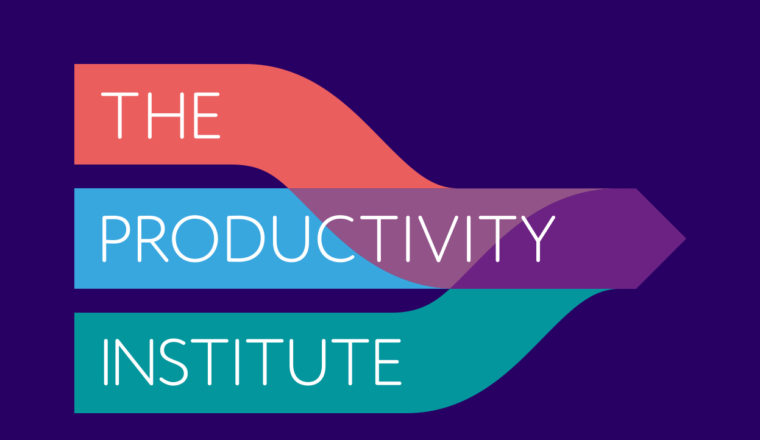Productivity in public services: insights from the Institute
Productivity in public services has never been more important. Most services are struggling to return to pre-pandemic performance levels. Improvements in performance will likely come from frontline workers finding new, innovative ways of delivering services.
From providing essential services like healthcare, education, and public security to maintaining critical infrastructure and facilitating an environment conducive to private sector growth, the public sector’s impact permeates every aspect of citizens’ lives. Its efficacy directly correlates with the quality of life and the level of innovation within a nation, while also ensuring value for taxpayer money.
Work at The Productivity Institute, which has looked at productivity in the policing sector, health care and local government, shows there are many opportunities and examples of good results. At its core, the public sector’s primary function revolves around providing public services. Improving productivity in the public sector is pivotal for ensuring the efficient and effective delivery of these services. However, measuring productivity within such a multifaceted system poses challenges due to the varied nature of services provided and the complexities inherent in their delivery mechanisms.
 To achieve inclusive growth, the focus should not be on cost-cutting but instead on a broader outcome-based approach considering organisational productivity and effectiveness as well as budgetary efficiency. Simply adopting the same concept of productivity as the private sector may lead to a narrow focus on budget efficiency and organisational productivity (i.e. ‘doing things right’) at the exclusion of effectiveness (‘doing the right thing’).
To achieve inclusive growth, the focus should not be on cost-cutting but instead on a broader outcome-based approach considering organisational productivity and effectiveness as well as budgetary efficiency. Simply adopting the same concept of productivity as the private sector may lead to a narrow focus on budget efficiency and organisational productivity (i.e. ‘doing things right’) at the exclusion of effectiveness (‘doing the right thing’).
A Universal Basic Infrastructure
Productivity Pitches
The Institute has also explored productivity in the public sector through its Productivity Pitches series with the Institute for Government, which featured practitioners across the public sector sharing best practice. They covered:
- Public sector productivity from a Cabinet perspective
- The first event included a discussion of the causes of weak productivity growth in public services, the role of digital and AI in improving public service productivity, and lessons to be learned from the private sector.
- The criminal justice system
- The second event in the series looked at innovative ways of improving productivity within frontline services in the criminal justice system. The talk looked at rapid video response in the police, early intervention for domestic abuse offenders, and neurodiversity units in prisons.
- Health and social care
- The third panel event provided an overview of work integrating health and care services to improve health outcomes for some of the most deprived communities, a programme to support people to live independently in their own home and avoid unnecessary admissions into hospitals, and a pioneering network of care professionals who support young people with suspected autism while they wait for specialist treatment.
Productivity in the Police
Policing is under pressure to demonstrate the public benefits of the substantial investments it has received. The productivity performance of the police sector has long been an issue of considerable interest but struggles with a significant lack of evidence.
The assessment of policing’s productivity performance is even more difficult than that of other public sectors due to the multi-outputs and multi-outcomes nature of police activity and the continuously shifting priorities for the police from a policy, strategic and operational perspective.
 Professor Bart van Ark and Research Associate Joel Hoskins researched a background study on policing productivity, which contributed to the Policing Productivity Review, an independent review commissioned by the Home Office through the National Police Chiefs’ Council, which was published in November 2023. It is part of the Treasury’s public sector productivity drive.
Professor Bart van Ark and Research Associate Joel Hoskins researched a background study on policing productivity, which contributed to the Policing Productivity Review, an independent review commissioned by the Home Office through the National Police Chiefs’ Council, which was published in November 2023. It is part of the Treasury’s public sector productivity drive.
The report details the range of barriers in implementing productivity-enhancing methods in the police and where data could be improved. These include: budget constraints, frequent policy interventions and the need to ‘fire-fight’ small crises to the detriment of long-term programmes that are conducive to productivity.
In part, barriers are also caused by a lack of bandwidth for leaders in the force to follow through with critical initiatives that are already underway in a clear, consistent and scaled-up manner. The report considered 250 works covering:
- The police delivery chain Developing an understanding of how police budgets and inputs are transformed into activities (outputs) which are then turned into societal outcomes.
- Measurement of police productivity An overview of the data that is available for measuring police productivity.
- Drivers of police productivity An overview of the key factors (organisation, people, and technology) by which an organisation can improve its productivity.
- Practical management of police productivity How organisations should think about putting insights on productivity improvements into practice.
Areas of attention
The study identified ways to drive improvements in the productivity performance of the sector:
- Mapping of service delivery chains for each function in the police force. A better understanding of budgets, inputs, output and outcomes for each core and ancillary function will help to determine what success looks like and what the needs are to drive productivity.
- Measurement of police productivity at both the aggregate level and the organisational level should be a major priority. However, such measurement efforts either require investment in new data collection or significant imputations.
- Sustainable productivity growth is obtained through the nurturing the drivers of productivity growth – the organisational driver and the technological driver to help digital transformation; and the individual driver to help create an agile workforce.
- Integrated approaches to change management reduce risk of failure. Evidence-based management, transparent communication, and internal and external collaboration are key drivers to manage productivity on a consistent basis.




